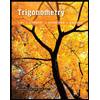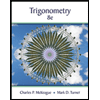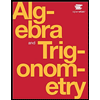1. We will work with the right side of this identity. All 4 terms on the right side of the identity (the sines and cosines) will become exactly the 4 terms on the left side if they are all divided by what? To divide all 4 terms legally, multiply the right side by which is a sneaky way of multiplying by 1. 1 - tan(z) 1+tan(z) cos (2) - sin(x) cos(x) + sin(x) 1- tan(2) 1+tan(2) ? cos(x) - sin(x) cos(x)+sin(x) = Now you have: 1- tan(z) ? cos(x) - sin(x) 1+ tan(2) cos(x) + sin(x) Distribute 2. and write as 4 fractions: 1-tan(z) 1+ tan(2) 3. Now you have: Simplify all four fractions; use a quotient 1 tan(z) 1+tan(z) + 1- tan(z) 1+ tan(2) identity where appropriate: Now you have: tan(2) ? 1+ tan(z) 1 tan(2) Proven! 1 + tan(2) cos(2)-sin(2) cos(2) + sin(2)
1. We will work with the right side of this identity. All 4 terms on the right side of the identity (the sines and cosines) will become exactly the 4 terms on the left side if they are all divided by what? To divide all 4 terms legally, multiply the right side by which is a sneaky way of multiplying by 1. 1 - tan(z) 1+tan(z) cos (2) - sin(x) cos(x) + sin(x) 1- tan(2) 1+tan(2) ? cos(x) - sin(x) cos(x)+sin(x) = Now you have: 1- tan(z) ? cos(x) - sin(x) 1+ tan(2) cos(x) + sin(x) Distribute 2. and write as 4 fractions: 1-tan(z) 1+ tan(2) 3. Now you have: Simplify all four fractions; use a quotient 1 tan(z) 1+tan(z) + 1- tan(z) 1+ tan(2) identity where appropriate: Now you have: tan(2) ? 1+ tan(z) 1 tan(2) Proven! 1 + tan(2) cos(2)-sin(2) cos(2) + sin(2)
Trigonometry (11th Edition)
11th Edition
ISBN:9780134217437
Author:Margaret L. Lial, John Hornsby, David I. Schneider, Callie Daniels
Publisher:Margaret L. Lial, John Hornsby, David I. Schneider, Callie Daniels
Chapter1: Trigonometric Functions
Section: Chapter Questions
Problem 1RE:
1. Give the measures of the complement and the supplement of an angle measuring 35°.
Related questions
Question

Transcribed Image Text:1.
We will
work with
the right
side of this
identity.
All 4 terms
on the right
side of the
identity (the
sines and
cosines) will
become
exactly the
4 terms on
the left side
if they are
all divided
by what?
To divide all
4 terms
legally,
multiply the
right side
by
which is a
sneaky way
of
multiplying
by 1.
1 - tan(z)
1+tan(z)
cos (2) - sin(x)
cos(x) + sin(x)
1- tan(2)
1+tan(2)
?
cos(x) - sin(x)
cos(x)+sin(x)
=
Now you
have:
1- tan(z)
?
cos(x) - sin(x)
1+ tan(2)
cos(x) + sin(x)
Distribute
2. and write as
4 fractions:
1-tan(z)
1+ tan(2)
3.
Now you
have:
Simplify all
four
fractions;
use a
quotient
1
tan(z)
1+tan(z)
+
1- tan(z)
1+ tan(2)
identity
where
appropriate:
Now you
have:
tan(2)
?
1+ tan(z)
1
tan(2)
Proven!
1 + tan(2)
cos(2)-sin(2)
cos(2) + sin(2)
Expert Solution
This question has been solved!
Explore an expertly crafted, step-by-step solution for a thorough understanding of key concepts.
This is a popular solution!
Trending now
This is a popular solution!
Step by step
Solved in 2 steps with 1 images

Recommended textbooks for you

Trigonometry (11th Edition)
Trigonometry
ISBN:
9780134217437
Author:
Margaret L. Lial, John Hornsby, David I. Schneider, Callie Daniels
Publisher:
PEARSON

Trigonometry (MindTap Course List)
Trigonometry
ISBN:
9781305652224
Author:
Charles P. McKeague, Mark D. Turner
Publisher:
Cengage Learning


Trigonometry (11th Edition)
Trigonometry
ISBN:
9780134217437
Author:
Margaret L. Lial, John Hornsby, David I. Schneider, Callie Daniels
Publisher:
PEARSON

Trigonometry (MindTap Course List)
Trigonometry
ISBN:
9781305652224
Author:
Charles P. McKeague, Mark D. Turner
Publisher:
Cengage Learning


Trigonometry (MindTap Course List)
Trigonometry
ISBN:
9781337278461
Author:
Ron Larson
Publisher:
Cengage Learning